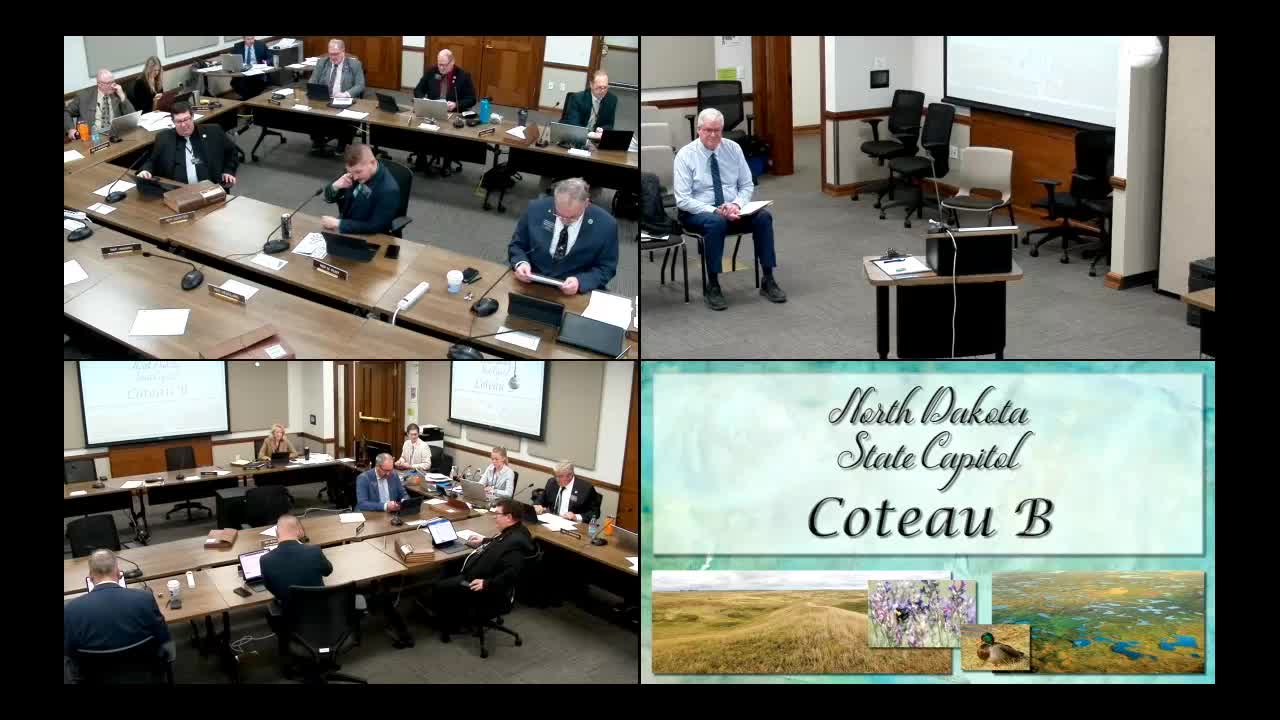Committee backs bill centralizing on-site wastewater rules under DEQ; sets licensing, inspections and penalties
Get AI-powered insights, summaries, and transcripts
Subscribe
Summary
The Department of Environmental Quality would gain exclusive rulemaking authority for on-site wastewater systems, the bill would require public-health inspections within 24 hours and create a state licensing regime for installers with fee and enforcement provisions, the committee heard and advanced Senate Bill 22-67 as amended.
The House Energy and Natural Resources Committee recommended a due pass for Senate Bill 22-67 as amended, a bill that would centralize rulemaking for on-site wastewater (septic) systems at the Department of Environmental Quality and create a statewide licensing and enforcement framework for installers.
"The department has the exclusive authority to adopt rules," Dave Glott, director of the Department of Environmental Quality, told the committee while explaining the draft. The bill, as amended and presented by Glott, says the DEQ will adopt statewide rules, provide technical assistance, and expects that local plumbing boards would remove overlapping rules to avoid conflict.
Key operational changes included in the amended draft, as explained by Glott: public health units shall conduct inspections of on-site wastewater systems within 24 hours when requested; local public health units may enter memoranda of understanding with adjacent counties to provide inspection services; the DEQ will establish licensing standards for installers; homeowners installing a system on their own property would not need a license but would still have to comply with rules; and a statewide appeals process would permit installers to petition DEQ for review within 10 business days.
Glott also outlined enforcement and fee provisions in the draft. For serious physical violations that threaten the environment or public health, the bill authorizes civil penalties of up to $12,500 per day; for record or paperwork violations, the bill authorizes penalties up to $5,000 per day. The draft authorizes the department to collect reasonable license and permit fees and deposit them into the department's operating fund. Glott estimated a working licensing fee for installers might be in the neighborhood of $200 and said the current installer population could generate roughly $50,000 annually under that fee structure. "We're gonna give it a shot," he told the committee when asked whether the appropriation and fee structure would be sufficient.
On appropriations and oversight, Glott said the draft includes an appropriation described in the amendment and that the department will report back to the committee on how the program is operating; he suggested a follow-up reporting timeframe around August 2026 to review fee adequacy and enforcement outcomes.
The committee accepted an amendment to the bill presented by Glott (motion by Representative Doctor, seconded by Representative Olson), then voted to recommend a due pass on SB22-67 as amended (motion by Representative Olson; seconded by Representative Novak). During the roll call on the due-pass motion the following votes were recorded: Chairman Porter: yes; Vice Chair Anderson: yes; Vice Chair Novak: yes; Representative Conmey: yes; Representative Doctor: yes; Representative Heinert: yes; Representative Johnson: no; Representative Marshall: yes; Representative Olsen: yes; Representative Ruby: yes. The clerk announced the result as a do-pass recommendation; the transcript records those responses and the committee carried the motion.
Supporters said the bill provides uniform standards intended to reduce local rule conflicts and speed inspections; installers and local public-health representatives who worked on the draft asked for a clear statewide framework and timely inspection requirements. Opponents or cautious members questioned whether the initial appropriation and fee structure would be adequate to cover DEQ's startup and oversight costs; Glott said the department will monitor implementation and return to the committee with results and recommendations.
The bill will proceed through the legislative process with the committee's recommendation. DEQ officials said they expect to coordinate with the state's installer association and local public-health units on training and implementation.
